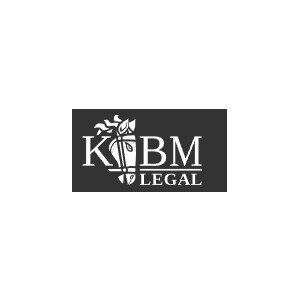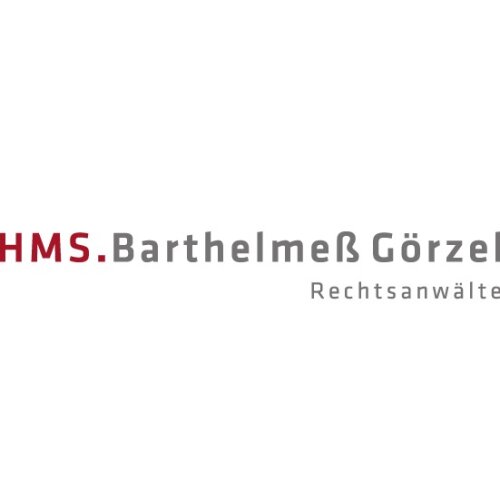Best Trademark Lawyers in Cologne
Share your needs with us, get contacted by law firms.
Free. Takes 2 min.
List of the best lawyers in Cologne, Germany
About Trademark Law in Cologne, Germany
Trademark law in Cologne, Germany, is governed by both national and European Union regulations. As part of Germany, Cologne follows the German Trademark Act (MarkenG), which aligns with the EU Trademark Directive. Trademarks serve as identifiers of the commercial origin of goods or services, providing protection for brand names, logos, slogans, sounds, colors, and other distinctive signs that businesses use to distinguish their offerings in the marketplace. Cologne, with its vibrant economy and thriving creative sectors, is a key location for businesses seeking to establish and protect their trademarks.
Why You May Need a Lawyer
There are several common situations where you may require legal help regarding trademarks in Cologne:
- **Trademark Registration:** To ensure that your trademark is successfully registered, correctly identifies your brand, and receives the full legal protection afforded by law.
- **Trademark Infringement:** If you believe your trademark rights have been violated or you have been accused of infringing on another's trademark.
- **Opposition Proceedings:** When another party opposes your trademark application, or you wish to oppose someone else's trademark registration.
- **Brand Expansion:** When looking to expand your business across borders, which may involve navigating international trademark laws and treaties.
- **Licensing and Assignments:** To negotiate, draft, or review contracts related to licensing or transferring trademarks.
Local Laws Overview
Cologne, being part of Germany, adheres to national trademark laws which include the German Trademark Act (MarkenG). This Act outlines the process of registration, defense, and enforcement of trademarks in Germany, supporting businesses in safeguarding and exploiting their brand equity. Additionally, EU regulations, such as the EU Trademark Regulation, also apply. The EU’s system allows for the registration of a Community Trademark (CTM), providing trademark protection across all member states with a single application. Key considerations include distinctiveness, non-descriptiveness, and non-conflict with existing trademarks.
Frequently Asked Questions
What is the process for registering a trademark in Germany?
Trademark registration involves applying to the German Patent and Trademark Office (DPMA). The process includes determining distinctiveness, conducting a trademark search for existing similar marks, filing the application, and awaiting examination and publication for potential oppositions.
How long does trademark protection last in Germany?
Once registered, a trademark in Germany is protected for ten years. It can be renewed indefinitely for further ten-year periods, provided the renewal fees are paid.
Can foreign businesses register trademarks in Germany?
Yes, foreign businesses can register trademarks in Germany. This is particularly prevalent for companies looking to enter the German market or seeking EU-wide protection via the European Union Intellectual Property Office (EUIPO).
What constitutes trademark infringement in Germany?
Trademark infringement occurs when an unauthorized party uses a sign identical or confusingly similar to a registered trademark in a manner likely to create market confusion regarding the origin of the goods or services.
How can I enforce my trademark rights in Germany?
Enforcement typically involves contacting the infringing party, issuing cease and desist letters, and potentially initiating legal proceedings in German courts if necessary.
What is the role of the DPMA?
The DPMA (German Patent and Trademark Office) is responsible for registering trademarks, maintaining the national trademark register, and handling opposition proceedings in Germany.
Are there any costs associated with trademark registration?
Yes, fees are associated with trademark registration. Costs include application fees, possible legal fees if professional advice is sought, and renewal fees every ten years to maintain the registration.
What happens if my trademark is opposed?
If opposed, you will need to defend your trademark application, which may involve presenting evidence and legal arguments. Seeking assistance from a trademark attorney is advised in such cases.
Can trademarks be sold or licensed in Germany?
Yes, trademarks can be assigned or licensed. This involves drafting agreements that detail the terms and conditions under which the trademark can be used by third parties.
What is the geographical scope of trademark protection obtained in Germany?
Trademark protection can be national or EU-wide. National protection covers Germany alone, while EU protection extends across all EU member states through a Community Trademark (CTM).
Additional Resources
- **German Patent and Trademark Office (DPMA):** The primary authority for trademark registration and information regarding national trademark law.
- **European Union Intellectual Property Office (EUIPO):** For EU trademarks covering all member states.
- **International trademark attorneys and law firms:** These professionals can provide expertise, especially when dealing with cross-border issues.
Next Steps
If you need legal assistance with trademark matters in Cologne, consider the following steps:
- **Consult a Trademark Attorney:** Get professional advice tailored to your specific situation, whether for registration, defense, or enforcement of trademark rights.
- **Conduct a Trademark Search:** Before filing a trademark, ascertain the uniqueness of your mark by conducting a thorough search.
- **Prepare Necessary Documentation:** Gather all required information and documentation for your trademark application or any legal proceedings.
- **Engage with Relevant Authorities:** For formal processes, reach out to the DPMA or EUIPO as needed.
- **Stay Informed:** Keep abreast of changes in trademark law and how they may impact your rights and responsibilities.
Lawzana helps you find the best lawyers and law firms in Cologne through a curated and pre-screened list of qualified legal professionals. Our platform offers rankings and detailed profiles of attorneys and law firms, allowing you to compare based on practice areas, including Trademark, experience, and client feedback.
Each profile includes a description of the firm's areas of practice, client reviews, team members and partners, year of establishment, spoken languages, office locations, contact information, social media presence, and any published articles or resources. Most firms on our platform speak English and are experienced in both local and international legal matters.
Get a quote from top-rated law firms in Cologne, Germany — quickly, securely, and without unnecessary hassle.
Disclaimer:
The information provided on this page is for general informational purposes only and does not constitute legal advice. While we strive to ensure the accuracy and relevance of the content, legal information may change over time, and interpretations of the law can vary. You should always consult with a qualified legal professional for advice specific to your situation.
We disclaim all liability for actions taken or not taken based on the content of this page. If you believe any information is incorrect or outdated, please contact us, and we will review and update it where appropriate.









